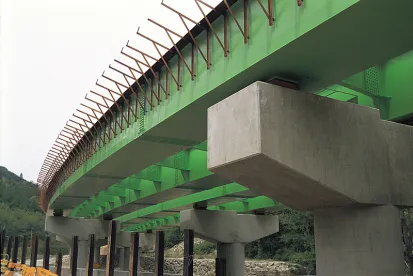“Oh, when times get tough, and friends just can’t be found,” the solution is not to lay down a “deficient” bridge. The Office of the United States Attorney for the District of Vermont recently announced a settlement with a Vermont-based contractor for violations of the Federal False Claims Act and the Vermont False Claims Act.
According to the allegations, in the course of constructing several bridges in Guilford and Bennington, Vermont, J.A. McDonald, Inc. (JAM) not only “materially altered” the structure of the bridges but also concealed those alterations and then submitted claims for payment to the Vermont Agency of Transportation. The false claims at issue are that the Vermont Agency of Transportation not only paid the contractor for “deficient bridgework” but also the state agency “unwittingly” submitted claims for payment to the Federal Highway Administration for the federal share of the project.
Under the terms of the settlement, the contractor paid $637,500 and is subject to a compliance agreement. To prevent employees from burning or cutting sections of steel structures reinforcing bridges (and then concealing their actions), the contractor is required to implement a variety of compliance and oversight programs, including retaining an Independent Monitor for three years, adopting an Ethics and Compliance Code and a Quality Assurance/Quality Control Program, and designating an internal Corporate Compliance Officer to manage these compliance initiatives.
A whistleblower could have pointed out these safety and contract fraud issues. When a whistleblower initiates a False Claims Act case, they may receive 15-25% of the government’s recovery.
State False Claims Acts are important tools for fighting fraud. Not every state has a false claims act nor do all state false claims acts extend beyond Medicaid fraud reporting.
As contractors begin bidding on projects as part of $1.2 trillion in infrastructure spending authorized by the Infrastructure Investment and Jobs Act, false claims and fraud are sure to follow. Of the funds going to transportation infrastructure improvements, $110 billion is earmarked for roads and bridges. The Department of Justice needs whistleblowers to report fraud involving government contracts, as a matter of public and fiscal safety.





 />i
/>i
